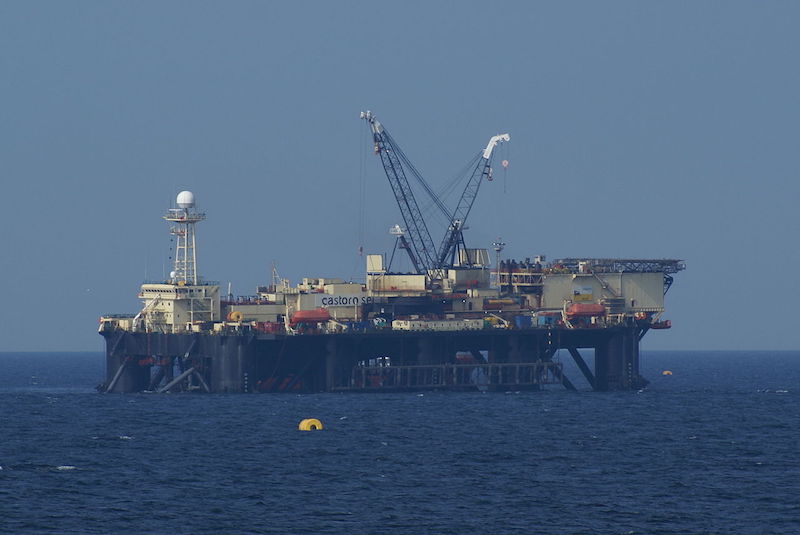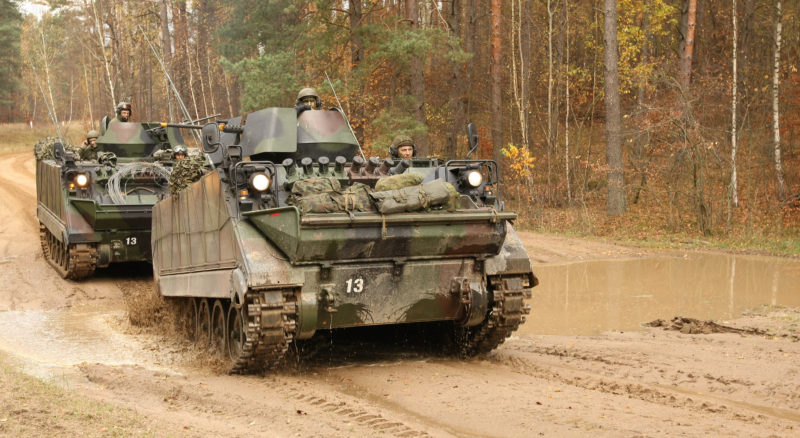New sanctions against Russia were approved by the US House of Representatives in late July, in response to the Kremlin’s interference with the US 2016 presidential elections campaign. Moscow decided to cut the US diplomatic staff in Russia by 755 employees (out of 1200) in response to Washington’s sanctions, heightening the tensions between the two capitals. Amongst numerous clauses is the imposition of sanctions on “any company which contributes to the development, maintenance, modernization or repair of energy export pipelines by the Russian Federation”. Splits emerged between the US and the European Union due to this last point, widening the growing rift between Brussels and the White House.
An EU-US Rift
Despite efforts to limit their energy dependency on Moscow following the annexation of Crimea in 2014, approximately one third of European natural gas, crude oil and solid fuels imports still come from Russia. Eastern and Central European countries are particularly dependent on these energy imports, while the dependence of Western European countries is less significant. Europeans fear that new US sanctions will penalize European companies (such as Wintershall and ENGIE), who are working with Russian gas company Gazprom to double the capacity of the Nord stream pipeline. Construction of the two 1,224 kilometers long pipelines running through the Baltic Sea began in 2010, and should have the capacity to transport a total of 55 billion cubic metres of gas a year to the EU for at least 50 years once finished. European energy companies stress that the Nord Stream project strengthens the EU’s energy market and reinforces its supply security. This explains why European Commission president Jean-Claude Juncker evoked possible measures of retaliation if European energy companies were to be impacted by the new US sanctions (although he later stepped back on such measures).
EU Energy Dependence on Russia
This recent feud between the US and Europe brings both new and old issues to the forefront. First and foremost, it hints that the US did not necessarily consider the interest of its European allies when enacting the new sanctions on Russia. Or, as evoked by some, that these sanctions seek to favour the imports of US natural liquefied gas to Europe as an alternative to Russian gas. Whatever the case, these sanctions are likely to exacerbate the rift between Europe and the United States, which has only grown since Trump’s inauguration. Seeing that EU interests are not considered in the decision making of its long-time ally could lead the EU to seek further independence from the US in other domains, such as security and defence.
Most importantly this feud brings an old issue of primary importance to the forefront: Europe’s significant energy dependence on Russia. Regardless of a supposed desire to strengthen the EU’s energy security following the annexation of Crimea in 2014, by limiting the existing dependency on Russia, little has been done since then. This is due both to the weight European energy companies hold in determining the EU’s energy policy and to major political divisions within the bloc. Energy companies, as demonstrated by Juncker’s talk of retaliatory measures against the US, ultimately drive the EU’s energy policy. European sanctions on Russia have done little to hinder the cooperation of European energy companies with their Russian counterparts, as proven by their continued collaboration with Gazprom on the Nord Stream project. Furthermore, the EU is experiencing trouble in limiting its dependency on Russian energy imports due to internal divisions. Eastern European members, who were part of the USSR and experienced Russia’s energy blackmail, are the first who hope to limit dependence on Russian imports. Lithuania and Poland notably built liquefied gas terminals to lower their reliance on their Eastern neighbor to meet their energy needs, and are opposed to the Nord Stream project. Other European countries, such as Germany, and energy companies see less harm in depending on Russia, notably arguing that the Nord Stream project means cheaper and more secure gas supplies for the EU.
In the face of Vladimir Putin’s desire to restore Russia’s image on the international scene, European divisions can only undermine Brussels bargaining strength with Moscow. Furthermore, seeing the divergence between the United States’ and Europe’s foreign policy in regards to Russia, the EU must consider seeking further independence from its long-time ally. While more independence and unity can only lead to a stronger European Union, will the EU have the courage to embark on such a path?
Photo: Castoro Sei semi-submersible station in the Baltic Sea south-east of Gotland (Sweden) whilst pipe-laying for Nord Stream via Wikimedia Commons. CC0 1.0.
Disclaimer: Any views or opinions expressed in articles are solely those of the authors and do not necessarily represent the views of the NATO Association of Canada.




